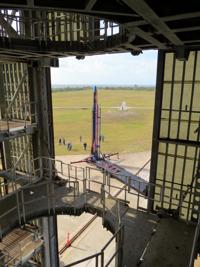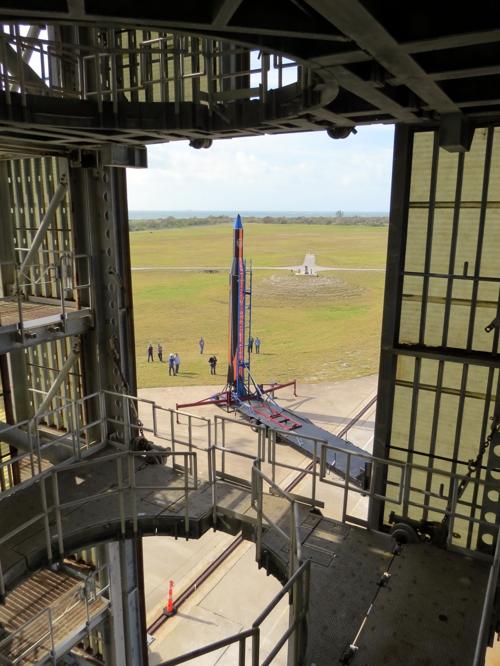Vector, a small-satellite launch startup based in Tucson, says it has inked an agreement with a Tempe company to host a decentralized cryptocurrency on a planned network of satellites.
Nexus will be the first company to deploy a cryptocurrency on a satellite orbiting the Earth when it debuts on Vector’s planned GalacticSky Software-Defined Satellite platform sometime in 2019, the companies said Wednesday.
Cryptocurrencies like Bitcoin and Nexus are essentially digital or virtual money that uses cryptography — encrypted computer code — to secure transactions, create new units and verify transfers.
Nexus was founded by Colin Cantrell, a computer software and hardware expert who created the Nexus currency. He is the son of Vector co-founder and CEO Jim Cantrell.
By hosting the cryptocurrency in space with GalacticSky, Nexus would “no longer be tied to a nation-state” and can create the backbone for a more decentralized financial system, the companies said.
Nexus will be able to distribute its data — contained in coding known as blockchain — across multiple satellites for improved reliability and performance, they said.
“With Bitcoin’s valuation at an all-time high, people are beginning to accept cryptocurrency as a real form of payment, but there are still problems with storage and ownership,” Colin Cantrell said in prepared remarks.
Placing the Nexus system on the GalacticSky platform will advance the company’s mission “of providing the world with a decentralized currency that can be accessed virtually anywhere, any time,” he added.
The companies said their partnership will highlight unique uses for GalacticSky’s technology and further prove the versatility of the satellite system.
Additionally, future Vector customers will be able to pay for launches using Nexus’ cryptocurrency, known by the abbreviation NXS.
“Housing Nexus’ cryptocurrency on our GalacticSky platform not only validates our proof of concept, but demonstrates how prolific this opportunity is for startups looking to innovate in space without the need to build their own satellite,” Vector’s Jim Cantrell said.
Meanwhile, Vector also announced a partnership with Astro Digital, a satellite imaging startup based in Mountain View, California, to conduct a dedicated launch in 2018 featuring one of Astro Digital’s satellites.
Vector has begun production of its first orbital vehicle and will break ground on a new launch-vehicle factory at a site near Tucson International Airport next year to ramp up production, the company said.





